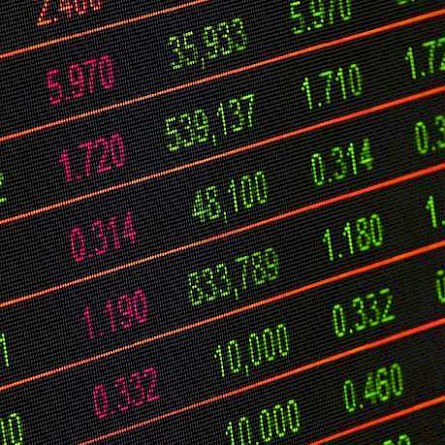If I look at the U.S. Nasdaq index, which is largely comprised of tech stocks, it peaked on November 22 and hit a recent low on January 28, correcting more than 18%. During the same period, the US government 10-year interest rate rose from 1.48% to 1.93%. These figures seem to support the negative relationship between interest rates and stock prices.
This is probably why many observers fear that a continuation of rising interest rates over the next few months will cause a correction in stock markets.
However, I recently read an interesting article published by Zacks Investment Research which could lead one to question a direct cause-and-effect relationship between interest rates and stock markets, at least in the medium term.
Thus, since the 1950s, there have been 12 periods in the United States during which the American Federal Reserve has raised its key rate in a sustained manner.
How did the stock market perform during these periods of rising rates?
Over the 12 periods listed, the S&P 500 index only posted two periods of negative returns: – 2% between March and September 1971 (while the key rate increased by 1.8%) and – 26% between February 1972 and July 1974 (9.6% increase in the key rate).
During the other ten periods, the S&P 500 posted positive returns, averaging 21.4%.
I conclude that increases in interest rates are not necessarily bad for stock markets, although they can increase their volatility in the short term.
Indeed, it should be remembered that interest rate increases are not totally negative for the investor because, most of the time, they occur when the economy is running at full speed. It seems to me that this is the case now, as the robustness of the economy after the pandemic is leading to high inflation that the regulatory authorities are trying to control.
The sharp decline in the stock markets that occurred during the 1970s and that I noted above occurred during a different economic period, I feel, than the one we are currently experiencing. At the time, oil prices had exploded higher due to the embargo of the United States by OPEC (Organization of Petroleum Producing Countries) and while the American economy was already reeling. Economists then spoke of a period of “stagflation”.
I don’t make short-term stock market forecasts. However, it seems that many observers only focus on the negative aspects of a rise in interest rates on the stock markets and forget that it is an expanding economy that leads to this rise in rates. It seems to me that nothing indicates that we are going through a period like that of the 1970s.





